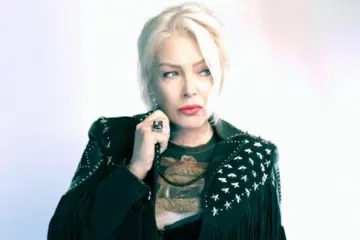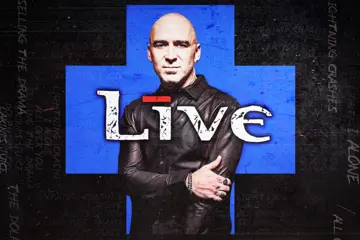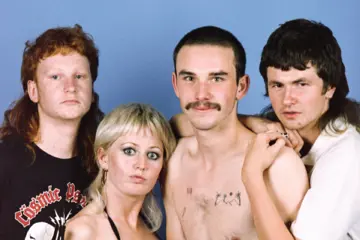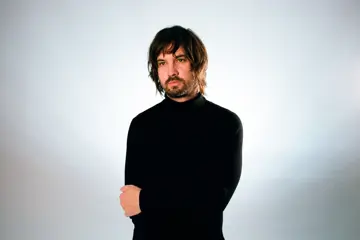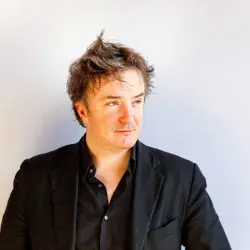 Dylan Moran
Dylan Moran"It’s mania. It’s an adrenaline charge. It’s probably really good for your health and really bad for you at the same time,” Irish comedian Dylan Moran says. He’s talking about stand-up comedy. “It’s certainly a way of hotwiring your own brain. It’s a way of checking that you’re still alive. It’s a lot of things. And obviously it’s a way of connecting with people.
“I feel that I have this connection because I’m always looking to see how my feelings or thoughts overlap with what I suspect, and it’s only a suspicion, but I suspect what is generally felt but probably little expressed.”
He might just be right: it seems like almost everyone can identify with what Moran speaks about in his stand-up shows, or with his character Bernard Black in Black Books — even if it’s just a shared penchant for red wine.
Moran says he has no checklist of feelings or thoughts that he must talk about each night of his new stand-up show Off The Hook, but rather that the themes “wax and wane” according to what he’s thinking about that day. “It’s not like the text of a play; it doesn’t sit still every night.
"People I know from Brisbane are really loudly proud of their city and so on but maybe that masks a little insecurity.”
Don't miss a beat with our FREE daily newsletter
“You have to talk about people’s lives. I talk about my own life and I talk about what I suspect is important in most people’s lives: the main tier of my life is my family, my children, my wife, all the ordinary facts of my life, that’s what interests me more than anything. Our wants, our fears, and how we function, and how we keep a chair and stand on it to get at what we want, and then pushing it away from us because we don’t really understand ourselves, what we’re up to — creating our own frustrations. Want and fear are two big characters.”
Moran says he feels lucky and excited to go to new places, from Darwin to Athens. He says that while performing in other cities, “you have to try and figure out what’s happening in every single place, how people are living their lives, and what they want to do”.
“The essentials of our lives are the same anywhere, whether you live in Paris or New York or Melbourne, wherever it is, the bulk of your life is really comparable to somebody else. But obviously the superficial local details are interesting.”
He begins talking about Australian variations: “People in Melbourne are really quite pleased that they have this alternative, this slice of alternative culture in the city, and consider themselves to be more artsy. Melbourne is the arts centre of Australia, does that sound fair to you? Whereas people in Sydney are more, have a reputation at any rate for being more interested in style and money and glamour.
“They’re really big broad brushstrokes, so if you were to rely on them, and think ok, that’s the truth of the situation, then you’re just doing yourself out of the necessary pleasure of finding out more about it. There’s always more to it than that. The people like to flaunt their reputations and say ‘Sydney is this, and this is who we are,’ but of course you dig around a bit. There’s a lot more to it than that and there’s plenty of people who are into money in Melbourne and there’s plenty of people who are interested in more interesting stuff in Sydney.”
So how does Moran do it? “You talk to people, and you actually compare what people say to what you see around you, y’know? In Brisbane, people I know from Brisbane are really loudly proud of their city and so on but maybe that masks a little insecurity.”
Touring Off The Hook, Moran also heads to South Africa, Hong Kong, Singapore and Europe. There’s talk of dates next year, including Canada and America. Moran admits he has “a little bit of a road in front of me”, and is not thinking about what he’ll do next.
When he embarks on such long tours, does he ever feel like he wants to call the whole thing off and just go home? How does he manage those feelings? “The way to combat that is just a couple of days off. If you eat the same lunches every day, day in day out, you don’t feel anything anymore, and it’s important to feel what you’re doing when you’re doing this, to be responsive to where you are. You just take a couple of days off when it all gets too much. You have to watch it to make sure you haven’t done 25 gigs in a row or something, because then you won't know who you are anymore.”








